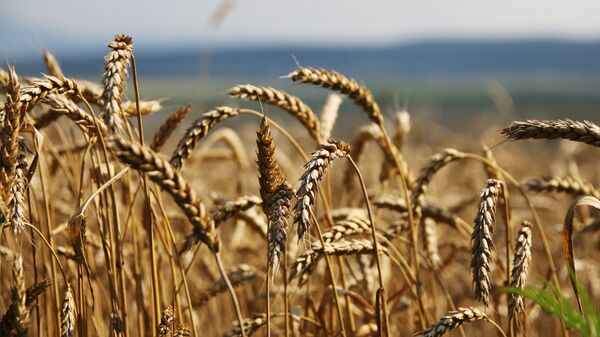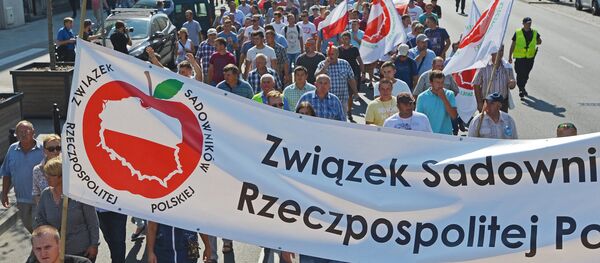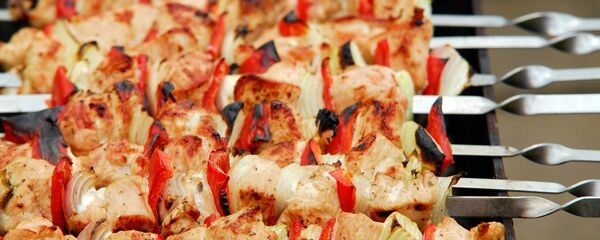Earlier this month, the UN's Food and Agriculture Organization projected a record grain harvest for Russia, with the US Department of Agriculture following suit, saying that Russian grain exports now exceed those of the US.
This year, the country is expected to produce about 64 million metric tons of wheat, with the total grain harvest expected to reach between 113 and 116 million tons. This would mean exceeding contemporary Russia's previous record – set in 2008 when farmers produced 108.2 million tons of grain. About 40 million tons from this year's harvest is expected to be exported, up from the 32 million tons exported last year.
Earlier this month, analysts calculated that Russia's agriculture had already surpassed arms trade as a percentage of the country's exports. Moreover, Minister of Agriculture Alexander Tkachev anticipated that by 2030, the grain harvest could reach 130 million tons annually.
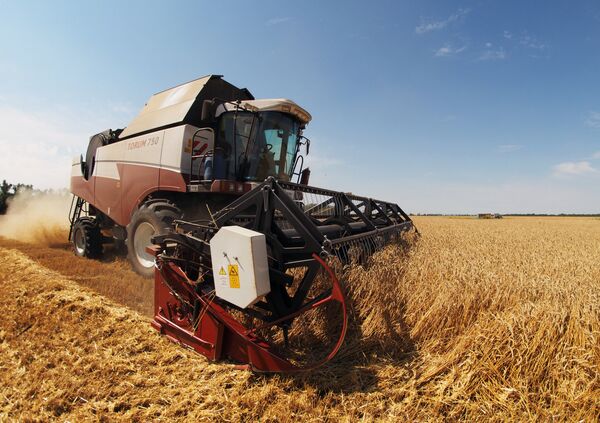
On Thursday, former Moscow Mayor Yuri Luzhkov, who has become somewhat of an farming connoisseur in his own right since he stepped down from his post in 2010, said that the ostensible rebirth of Russia's agriculture is great news. The politician emphasized that apart from replacing hydrocarbons with something edible, the resurrection of agriculture has a philosophical importance – for Russians, he noted, farm work "returns us to our origins and identity, borne in the depths of our people, about our land."
Speaking to the independent online newspaper Svobodnaya Pressa, Elena Turina, general director of the Moscow-based Institute of Agricultural Marketing, emphasized that grain exports are just the beginning.
"We have become a world leader in grain exports; furthermore, we are coming close to a level where we can take up a leading position as a major exporter of pork and poultry, and after that – of field vegetables. If we put in the necessary effort, we can achieve good results in the export of dairy products as well. In fact, we already have a good export potential, and not just in food products of all sorts, but in feedstock as well."
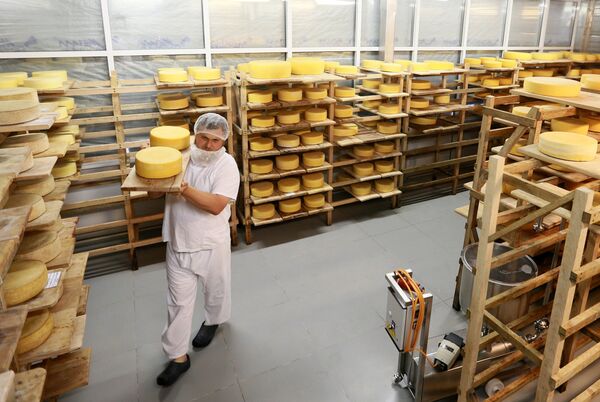
According to Turina, the import-substitution programs introduced in 2015, which made use of state financial support, benefitted Russian farmers significantly. The programs, she noted, "provided the Russian agro-industrial complex with serious momentum…Moreover, special attention was paid specifically to those segments previously filled with imports; 2015-2016 saw a 15% increase in the production of fruits and vegetables – specifically from the list of items which had been imported from abroad prior to these measures."
Noting that it's difficult to say whether agriculture could really come to compete with the oil industry in terms of export earnings, Turina noted that "in any case, sooner or later, we will have to move away from this dependence on raw materials – to get off the 'needle' so to speak. The situation in the oil market, according to most experts' forecasts, will remain complex for a very long time. An average price of $45-47 per barrel means an obvious lack of revenues from exports, and points to the need to find other sources of income."
In any case, even if Russia cannot rely on agricultural exports outstripping the earnings brought in by hydrocarbons, at least in the short term it can, at the very least, count on food security.

